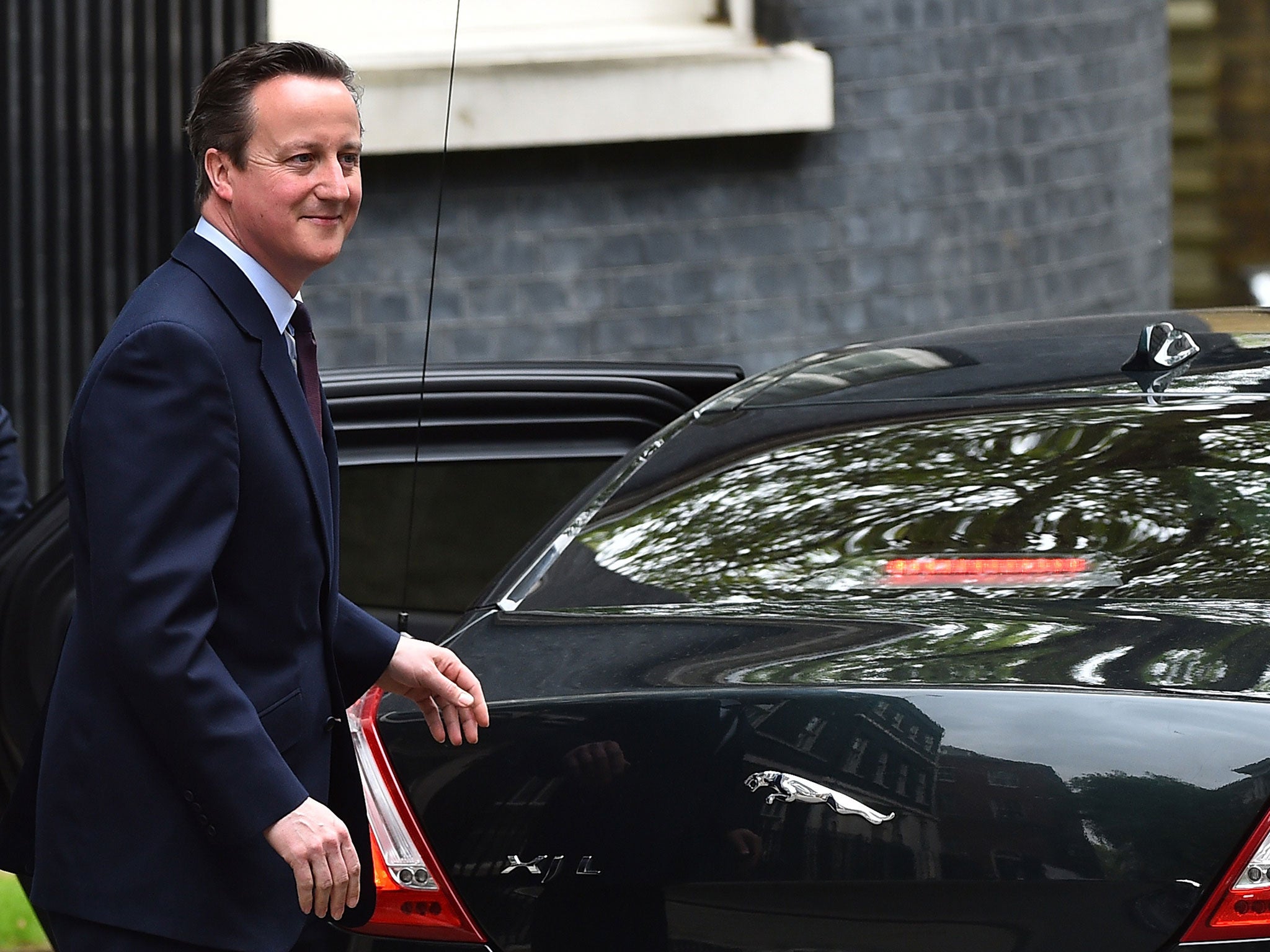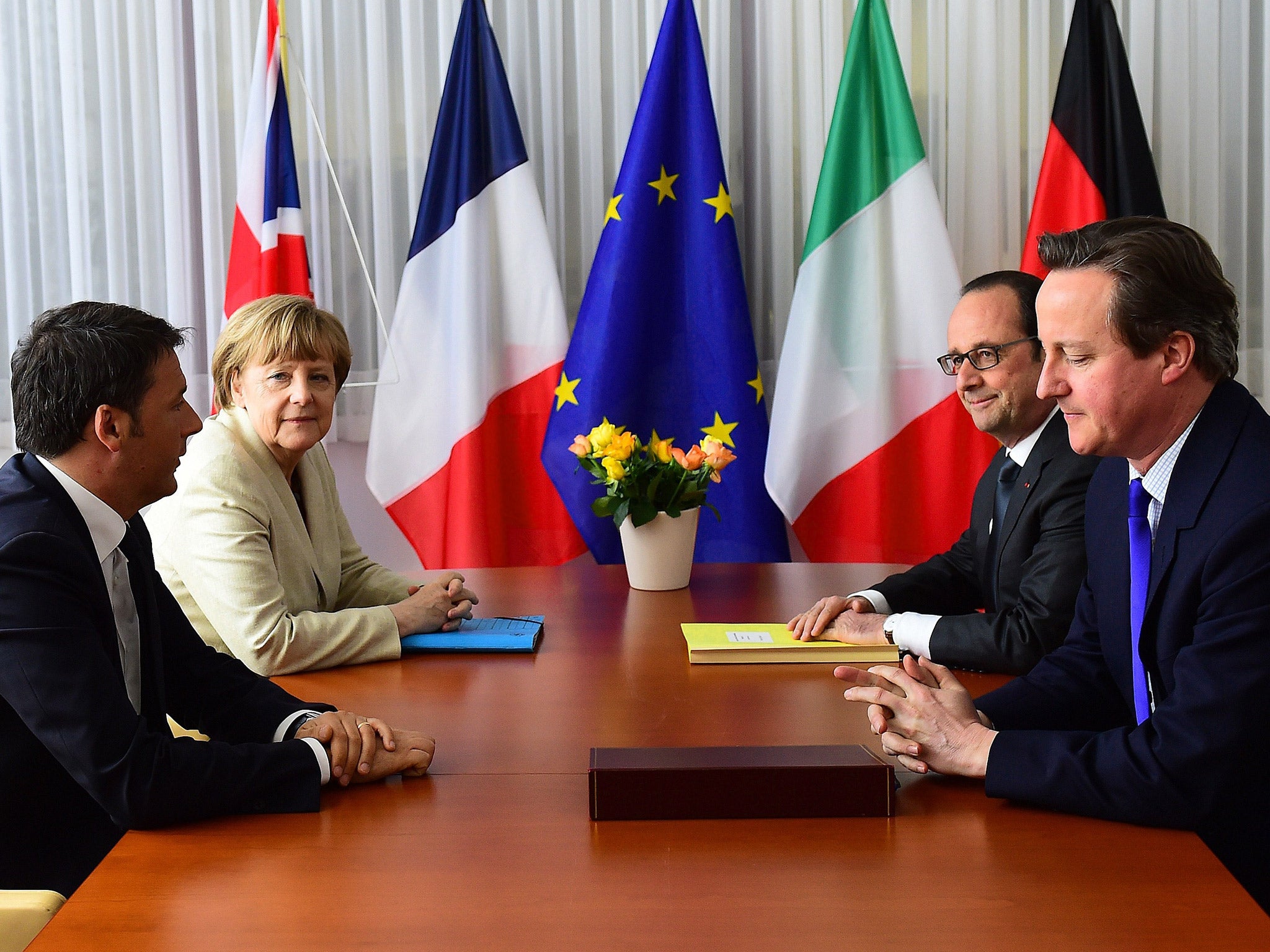Election results: Could David Cameron be the PM who lost the Union and leaves the EU?
Inside Westminster
Your support helps us to tell the story
From reproductive rights to climate change to Big Tech, The Independent is on the ground when the story is developing. Whether it's investigating the financials of Elon Musk's pro-Trump PAC or producing our latest documentary, 'The A Word', which shines a light on the American women fighting for reproductive rights, we know how important it is to parse out the facts from the messaging.
At such a critical moment in US history, we need reporters on the ground. Your donation allows us to keep sending journalists to speak to both sides of the story.
The Independent is trusted by Americans across the entire political spectrum. And unlike many other quality news outlets, we choose not to lock Americans out of our reporting and analysis with paywalls. We believe quality journalism should be available to everyone, paid for by those who can afford it.
Your support makes all the difference.The history books may record that the seeds of David Cameron’s remarkable election victory were planted at 7am on 19 September last year. Two hours after the result of the referendum on Scottish independence, he promised “English votes for English laws” (EVEL) to ensure that the Conservatives rather than Ukip could play the English card.
His opportunist move was not part of a cunning general election plan but helped the Scottish National Party snatch an incredible general election victory from the jaws of defeat in the independence referendum. By saying that EVEL would run in tandem with further devolution to Scotland, Mr Cameron played into the SNP’s hands, giving it a new grievance.
The SNP’s rise and rise under its impressive new leader Nicola Sturgeon handed Mr Cameron a lethal weapon in the general election campaign. Labour’s expected losses in its Scottish heartland meant that Ed Miliband would have to rely on the votes of SNP MPs – a scare story which worked brilliantly for a Tory campaign thrashing around for ideas. English voters recoiled from the prospect of the SNP tail wagging the Labour dog. It made Labour look scary –a worst bet than the party many voters still regarded as nasty. The SNP factor wasn’t the only reason for Labour’s crushing defeat but it played a big part.
On 8 May, Mr Cameron promised to govern as “One Nation, One United Kingdom” but the nationalist forces unleashed in Scotland – and England – will grow rather than dissipate. The Prime Minister will have to ride this tiger and may struggle to prevent the UK looking like “Two Nations” – SNP Scotland and Tory England. Although Ukip did not make a breakthrough this time, it will compete with the Tories for the English nationalist vote at the 2020 election.
The next few years will test Mr Cameron’s “One Nation” credentials to the limit. When I interviewed him on the campaign trail, he insisted he is still the “Compassionate Conservative” who won his party’s leadership in 2005. That will now be put to the test as he implements the £12bn of welfare cuts that the Tories refused to spell out during a campaign in which all parties preferred to talk about their goodies rather than reveal what they would cut. The new government will have to squeeze spending on policing, defence and local government, including social care. Even the “protected” NHS budget will be stretched to the limit. A financial crisis looms this year and will not be eased by the Tories’ pledge of an extra £8bn a year by 2020. The Tories point to their record in finding savings since 2010. But clearing the second half of the deficit will be much harder because the low-hanging fruit has already been picked.

As he deservedly savours his remarkable victory this weekend, Mr Cameron’s mind will doubtless turn to the last time the Tories won a majority – 1992. There are lots of parallels: the opinion polls were wrong, and a late surge saw voters turn away from a Labour Party led by a left of centre figure – Neil Kinnock. Mr Cameron was a 25 year-old researcher at Tory HQ who got up at 5am to brief John Major, the Prime Minister, on the morning newspapers.
When his celebrations are over, Mr Cameron will also recall that Prime Minister Major – who started with a bigger overall majority of 21 – was at the mercy of rebellious, right-wing Eurosceptic backbenchers. Mr Cameron will miss the “pesky Liberal Democrats” who got on his nerves at times but guaranteed him a Commons majority of more than 70. His “big, open and comprehensive offer” of coalition in 2010 was made in part so he could not be held to ransom by his backbench critics.

The threat the rebels will now pose when he has such a small majority will make the Prime Minister’s biggest challenge – Europe—even harder. His pledge of an in/out referendum by 2017 will buy him a little time – but not much. The Eurosceptics will be able to raise the bar when he renegotiates Britain’s EU membership terms before putting them to the referendum. There is no guarantee that Angela Merkel, the German Chancellor and pivotal EU leader, will go the extra mile to keep Britain in the EU club. Jean Claude-Juncker, whose appointment as European Commission President was opposed by Mr Cameron, will do him no favours and doubts that the EU’s governing treaty can be changed by 2017.
Mr Cameron intends to recommend an “in” vote in the referendum. But if he does not get a good enough deal, he might yet feel enough backbench heat to recommend an “out” vote in order to survive as leader of his party. Many Tory MPs have already made up their mind and want a “Brexit.” They will not be persuaded, no matter what Mr Cameron secures.
Some Tory MPs argued that Mr Cameron would not face the same fate as the Major administration because the party would learn the lesson of history and not lapse into a civil war on Europe. I am not so sure about that. For some Tories, the EU matters more than the party. The man who once told his party to stop “banging on about Europe” will now allow it to bang on about Europe for the next two and a half years. His hardline critics would have moved quickly to oust him as Tory leader this weekend if the result has given them half a chance. They would do so in 2017 time if they perceive a “sell-out” on Europe.
More worryingly, the twin challenges of Europe and Scotland are intertwined. If Britain voted to leave the EU, it would give Ms Sturgeon the green light for another independence referendum since Scots would almost certainly vote to stay in the EU.
If he plays it wrong, the history books may remember Mr Cameron not for winning an unexpected election victory, but as the last Prime Minister of the UK and the leader who unwittingly took Britain out of the EU.
Join our commenting forum
Join thought-provoking conversations, follow other Independent readers and see their replies
Comments